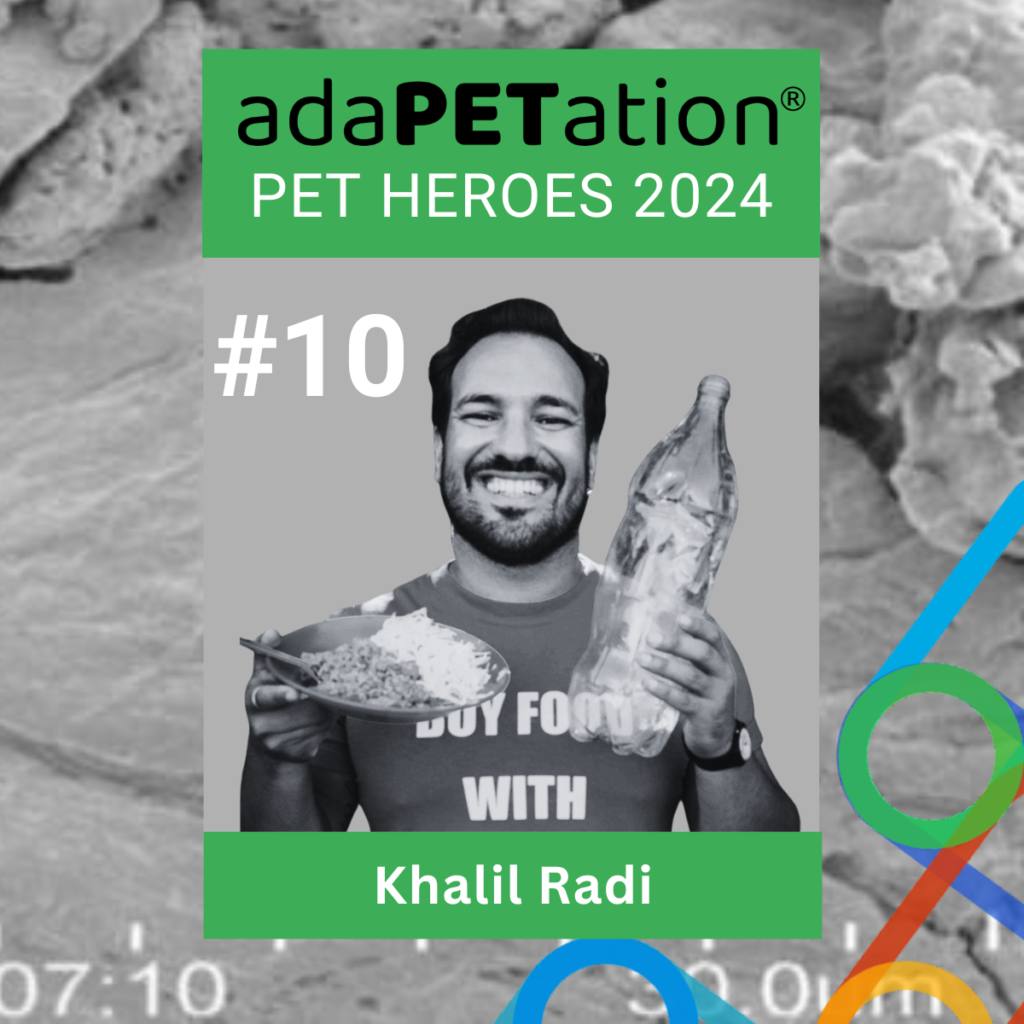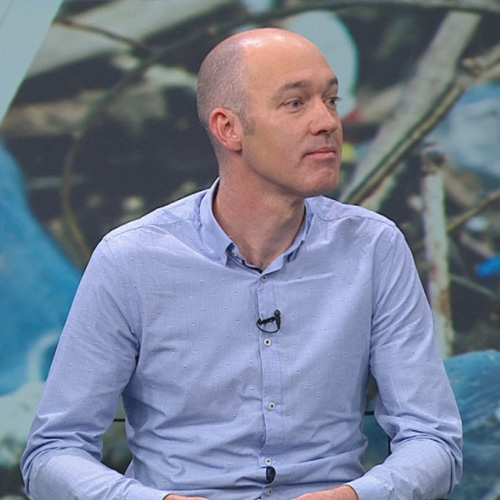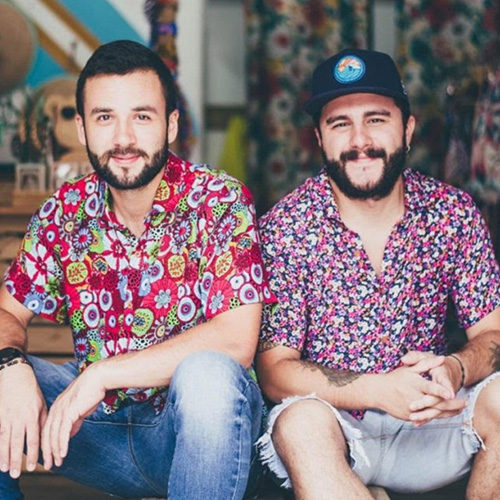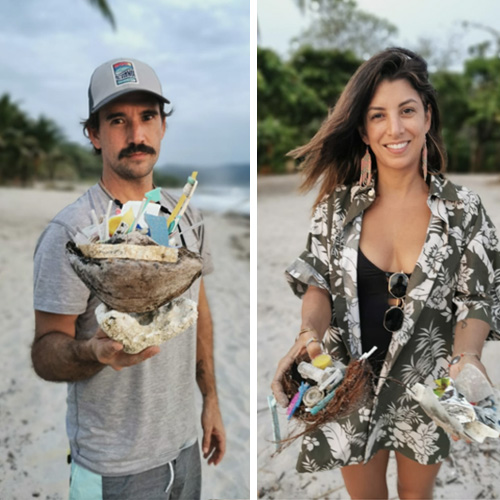
Our tenth finalist for the PET Heroes 2024 award is Khalil Radi, the innovator behind the transformative social enterprise "Buy Food with Plastic." Born in Switzerland and enriched by Moroccan and Spanish roots, Khalil sees himself as a global citizen and a dedicated "doer," passionate about creating positive change for people and the environment.
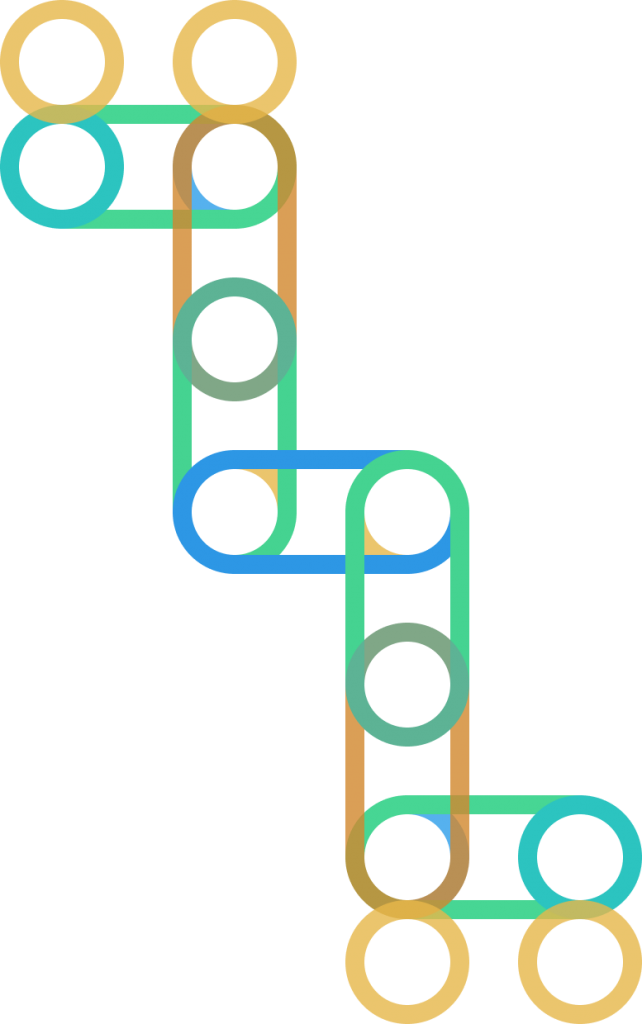
Five Minutes with Khalil Radi:
AdaPETation®: Welcome, Khalil. It’s great to have you. Could you share with us the lightbulb moment for “Buy Food with Plastic”?
Khalil Radi: Of course. The lightbulb moment came when I was in Nicaragua during the civil war, witnessing the hunger crisis. I realized that just providing food wasn’t sustainable. Seeing people with time but no money, I thought of using their time to collect plastic bottles as a currency to purchase a hot meal. This idea came from understanding that sustainable help means providing the means to be self-sustaining, not just offering temporary relief.
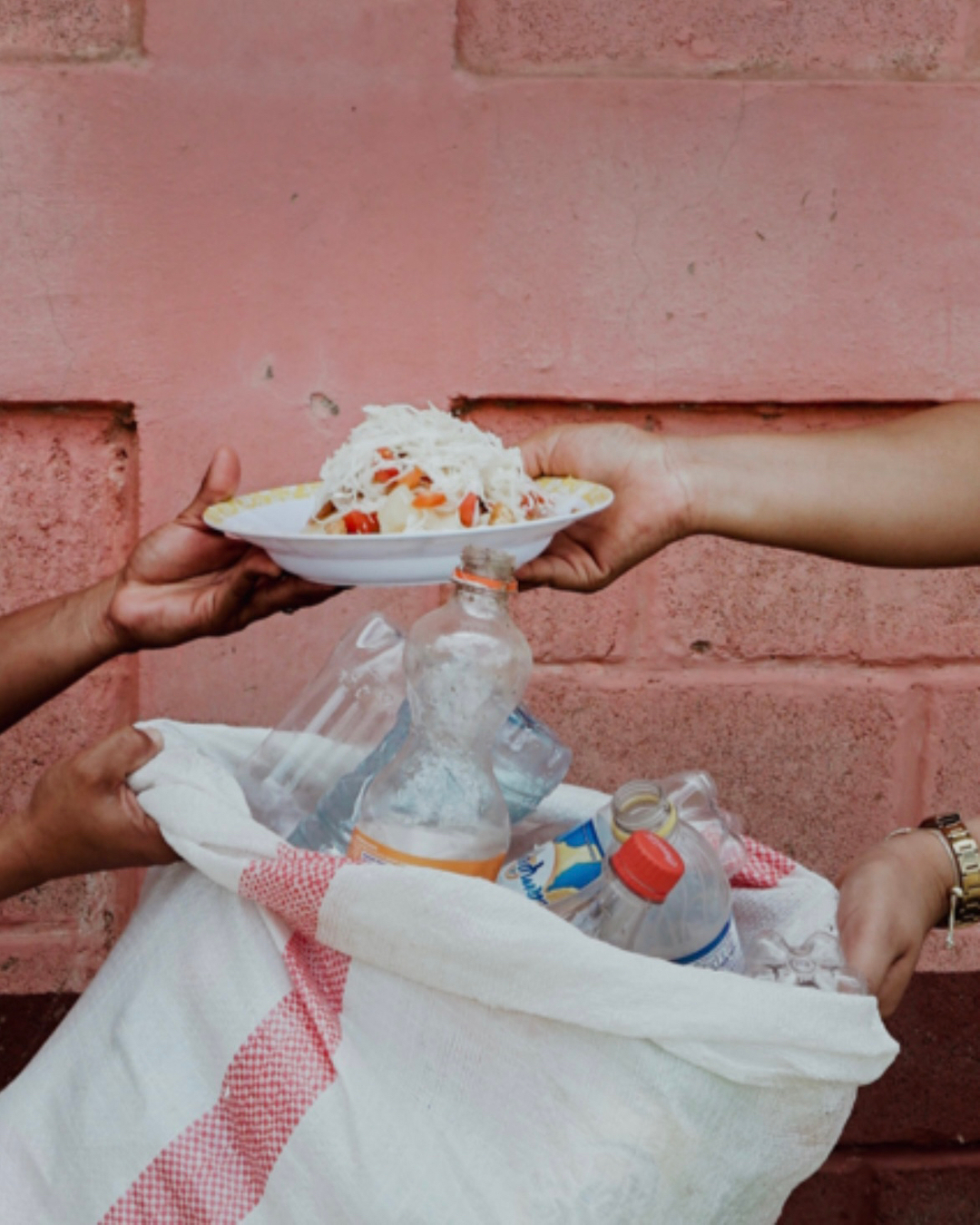
AdaPETation®: And how did you finance the first event?
Khalil Radi: My closest friends and I financed the first community event for 200 people with around $450. It was very easy and fast to collect. I shared my idea, and with a little contribution from myself and donations from my friends, we quickly organized the event.
AdaPETation®: What surprised you about the initial impact?
Khalil Radi: I was extremely surprised by the turnout and the amount of plastic we collected. I expected maybe 30-40 people, but 180 showed up, and we collected more than 2000 plastic bottles. It was a clear sign that the community was eager to participate and that our idea had real potential to make a difference.
AdaPETation®: What motivated you to focus on plastic waste?
Khalil Radi: My passion for surfing and love for the ocean made me painfully aware of the plastic pollution problem. In Nicaragua, I saw plastic everywhere and learned that there was no infrastructure for waste management. This experience, combined with the hunger crisis, made it clear that we could make a significant impact by connecting these two issues.
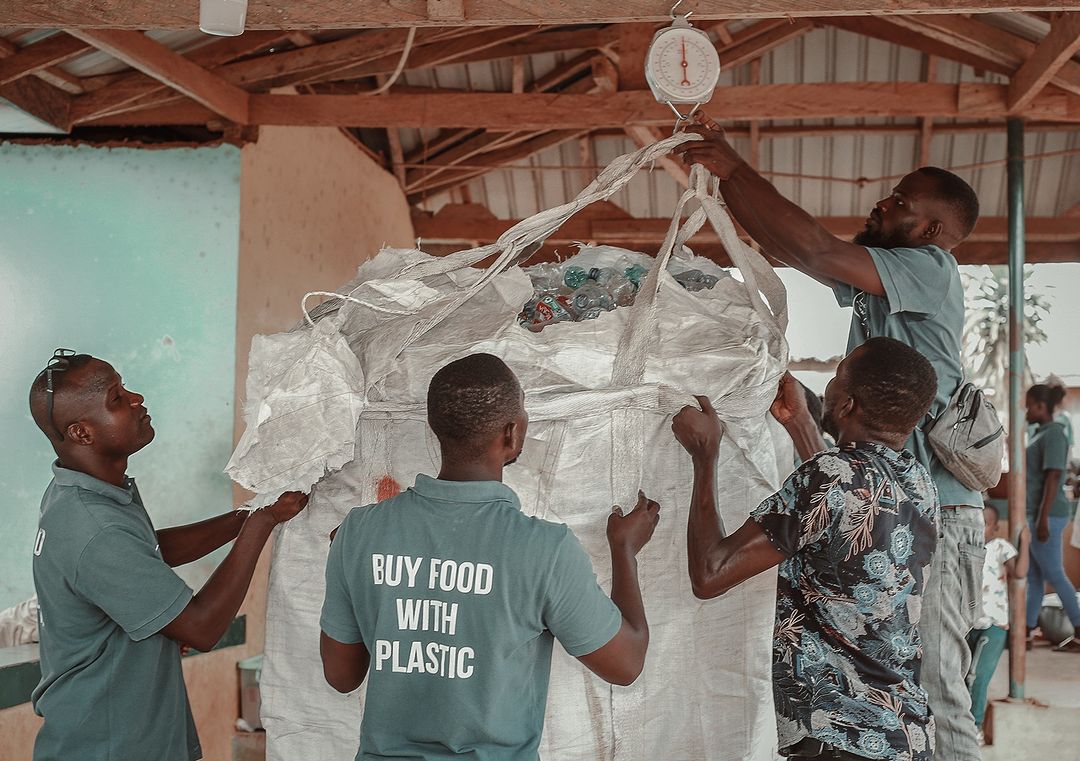
AdaPETation®: Can you tell us about the journey of the plastic you collect?
Khalil Radi: Initially, we were naive, thinking we could easily recycle the collected plastic. However, we quickly learned that there was no recycling station in the region. Our first batch of plastic bottles was used by a local woman to build a house, which was a creative and impactful way to reuse the material. This experience taught us the importance of finding sustainable ways to process the collected plastic, leading us to explore and establish more efficient recycling methods.
AdaPETation®: Looking ahead, what’s your vision for the future of “Buy Food with Plastic”?
Khalil Radi: Our vision is to expand our impact, creating more jobs and establishing recycling facilities in more communities. We aim to inspire others to adopt similar models, demonstrating that environmental challenges can be turned into opportunities for social and economic improvement.
AdaPETation®: Finally, what message do you have for our listeners about addressing global challenges?
Khalil Radi: I believe that everyone can contribute to solving global challenges. It starts with recognizing the resources we have, like time and community, and using them creatively to make a difference. Our project shows that with innovation and collaboration, we can tackle environmental issues and hunger simultaneously.
AdaPETation®: Khalil, your initiative bridges environmental action with social welfare. How do you measure the success of “Buy Food with Plastic” in these two areas?
Khalil Radi: Success for us is multifaceted. Initially, we measured it by the number of meals distributed and the amount of plastic collected. But as we evolved, we started to see success in the broader impact on communities. For example, we’ve been able to create jobs, which in turn provide stable income, access to education, and improved living conditions. Environmentally, success is seen in the reduction of plastic pollution and the promotion of recycling practices. We’ve also started to collect data directly from participants to better understand our impact, learning that a significant portion of the plastic we collect now comes from households, indicating a shift in waste disposal behavior.
AdaPETation®: With such a unique model, what challenges do you foresee in scaling “Buy Food with Plastic,” and how do you plan to address them?
Khalil Radi: Scaling our model comes with challenges, particularly in funding and logistics. As we aim to expand, securing consistent funding to support our operations and growth is crucial. We’re exploring various sources, including partnerships with companies and foundations, to diversify our funding. Logistically, expanding our reach requires establishing more recycling facilities and ensuring they can operate efficiently. We’re looking into innovative recycling technologies and methods to make this process more sustainable and cost-effective. Additionally, engaging more communities and building trust takes time and effort, but we’re committed to working closely with local partners to ensure our model adapts to the needs of different regions.
The dynamic and adaptive nature of “Buy Food with Plastic,” showcase Khalil Radi’s commitment to both environmental sustainability and social welfare. Through innovative recycling initiatives and community engagement, Khalil and his team are paving the way for a more sustainable and inclusive approach to tackling global challenges.
JOIN THE MOVEMENT
If you are looking for more information on the equitable approach of Khalil Radi and Buy Food with Plastic, listen to the full interview on the adaPETation® podcast or sign up to receive more information about Buy Food with Plastic on its website.
Share it
The Other PET Heroes & Useful Links
THE HISTORY OF PLASTIC
Throughout the history of plastic, PET has been crucial in keeping food fresh with lightweight and durable packaging solutions that have helped reduce food waste for almost a century. Learn all about the invention of plastic and the important role it has played feeding people and saving the lives of humans and elephants in the adaPETation® timeline of the history of plastic.
